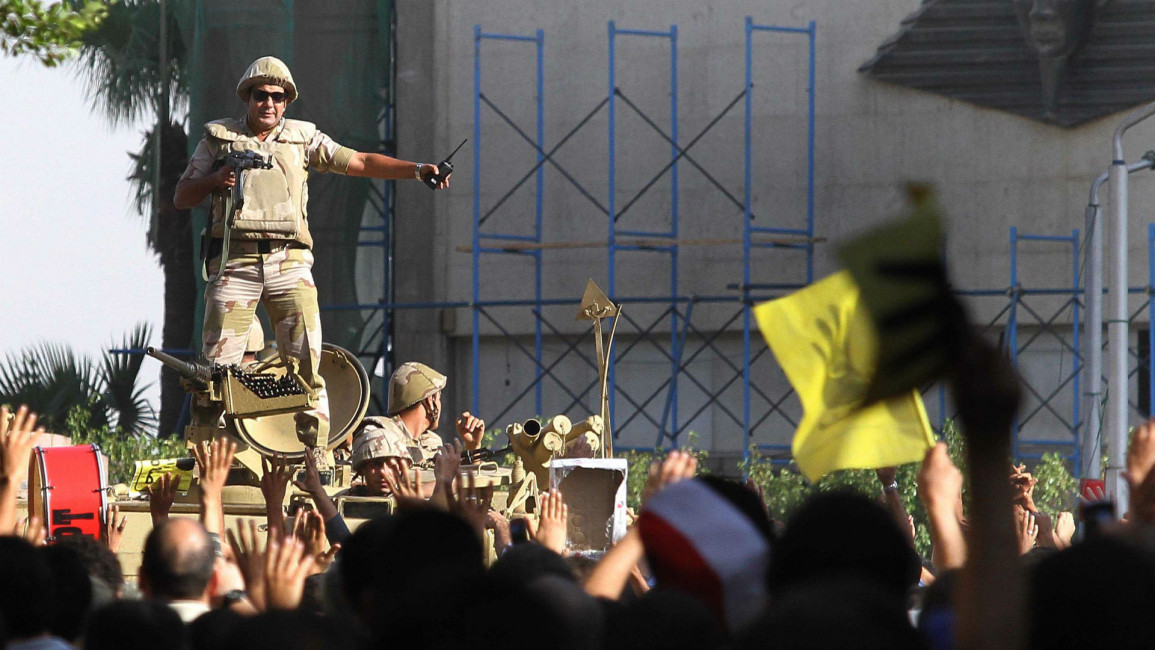Egyptian military granted sweeping police powers
A decree issued by Egyptian President Abd al-Fattah al-Sisi on Monday empowered the army and police to crack down on violent opposition, but critics charge it could be used against all opposition to Sisi's rule.
"This decree is to counter calls for protests on the anniversary of the January 25 revolution," an Egyptian military expert told al-Araby al-Jadeed. "It is a pre-emptive strike against demonstrations after the security services told Sisi the expected protests would be too overwhelming for the police to deal with."
According to the decree, any crime on the premises of any state institution or public facility, including universities, and infrastructure such as roads and bridges, will be regarded as an attack on a military facility and may be tried in a military court - even if the crime is only a misdemeanour.
The decree, which will be in effect for two years, effectively grants broad police powers to the military.
|
This law... will be used to justify keeping tanks on the streets of Egypt for the next two years. |
"This law is a major blow to public freedoms," said human rights activist Haitham Abu Khalil. "It will be used to justify keeping tanks on the streets of Egypt for the next two years."
Both Human Rights Watch and Amnesty International have criticised the system of military justice in Egypt as lacking independence and impartiality, two key requirements for a fair trial under internationally recognised standards of justice.
Ahmad Rami, a spokesman for the Muslim Brotherhood, said the primary goal of the law was "to confront the student movement in universities after the police failed to suppress it. I expect the military to move on to university campuses soon."
Ahmad al-Baqari, head of the Egyptian students union, played down the importance of the law. "Subjecting students to military trials isn't the problem, because there are no fair trials in Egypt, whether they are normal or military," he said. "None of the measures Sisi has taken will dissuade students from confronting security intrusions in universities and overthrowing the military coup in Egypt."
This is an edited translation from our Arabic edition.


![President Pezeshkian has denounced Israel's attacks on Lebanon [Getty]](/sites/default/files/styles/image_684x385/public/2173482924.jpeg?h=a5f2f23a&itok=q3evVtko)



 Follow the Middle East's top stories in English at The New Arab on Google News
Follow the Middle East's top stories in English at The New Arab on Google News


